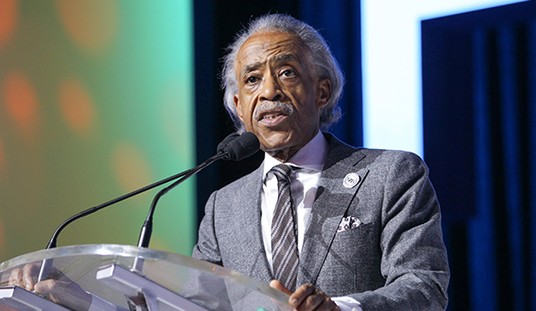The State Department marked the birthday of Alan Gross, a USAID subcontractor imprisoned by Cuba since December 2009, as his family warned he may not live to see his next birthday under the Castro regime.
“Today is Alan Gross’s 65th birthday. Instead of celebrating it with his family where he belongs, Mr. Gross remains in a Cuban prison — where he has been held for more than four years,” State Department spokeswoman Marie Harf said in a statement. “We remain deeply concerned about Mr. Gross’s well-being and again call on the Government of Cuba to release him and allow him to be reunited with his family.”
“His detention remains an impediment to more constructive relations between Cuba and the United States,” Harf added.
Gross’ family noted that today also marks his 1,612th day in a Cuban prison cell — agonizing years in which he’s lost more than 110 pounds and is allowed out his his tiny cell for only one hour per day.
Gross had wrapped up work on a project to increase Internet access and connectivity at Cuban synagogues when he was seized the night before he was to return home. He spent 14 months behind bars before any charges were filed, then in March 2011 was quickly tried and convicted of “acts against the independence or territorial integrity of the state” for distributing cell phones and other communications equipment as part of the USAID project.
He was sentenced to 15 years behind bars. Gross, who recently completed a nine-day hunger strike, told his attorney that this will be the last birthday he spends in prison, one way or another.
“Our family has spent over five years suffering through Alan’s arrest, trial and imprisonment. He’s been ripped from our family, he has been unable to be there for us to deal with serious illnesses, and he has completely missed out on family gatherings, birthdays and our oldest daughter’s wedding,” said his wife, Judy Gross, in a statement Thursday. “As he marks his 65th birthday tomorrow, I worry he will not be able to carry on much longer. After years of inaction, I’m imploring President Obama to intervene personally on Alan’s behalf and bring him home to our family.”
Harf said last week that the case is one that “the secretary and other officials raise with our interlocutors who have relationships and have discussions with Cuba.”
“We recognize that Mr. Gross is in an extremely difficult situation. He’s been imprisoned by Cuban authorities for more than four years for doing nothing more than helping Cuban citizens gain access to the internet. We have made abundantly clear to Cuban officials our position that Mr. Gross ought to be released immediately. President Obama has engaged foreign leaders and other international figures to use their influence with Cuba to promote his release, and we’ve kept the case at the forefront of our discussions. We reiterate, of course, our call for the Cuban government to release Alan Gross immediately. His detention remains an impediment to more constructive relations between the United States and Cuba,” she said.
Comments that he may not leave prison alive “obviously…certainly are, of course, of great concern to us. His health and safety and well-being are on our minds every day, and that’s why we’re working so hard to secure his return.”
Gross’ attorney, Scott Gilbert, said that after a visit with his client last week “it has become clear that we’ve reached a critical point with regard to his health and emotional well-being.”
“It is time for the President and his administration to demonstrate some leadership and engage with the Cuban government to secure Alan’s release and safe return to his family,” Gilbert said.
“I don’t think there’s any doubt in the minds of any senior Cuban government official what our views are, which is that Mr. Gross ought to be released immediately,” White House press secretary Jay Carney said last month when asked about the hunger strike. “And that has been made abundantly clear, I think, to the government of Cuba, and it remains our position to this day.”
Among Gross’ supporters in Congress, Sen. Jerry Moran (R-Kansas), who authored a 2012 resolution calling for Gross’ release that passed the Senate, said the contractor’s hunger strike showed he is “now in a state of even greater suffering as he continues to be held unjustly by the Cuban government.”
“The United States government must continue to push Cuba for the release of Mr. Gross. His return is long overdue, and it is extremely disappointing that it requires life-threatening action to draw attention to his plight,” Moran said last month. “We must do everything possible to return Alan to the United States and bring his family’s terrible nightmare to an end.”
Last month on the Senate floor, Foreign Relations Committee Chairman Robert Menendez (D-N.J.) warned “the clock is ticking for Alan Gross.”
“Since 2009, he has been detained in Villa Marista – a prison in Havana notorious for its treatment of political prisoners by the Cuban National Security Agency. This is not a minimum-security prison where foreigners are routinely held. It is a harsh, repressive prison – reserved for Cuban dissidents,” Menendez said.
“He is still being held at Villa Marista, and so I come to the floor to urge my colleagues – indeed, to urge the administration – to do all it can to free Mr. Gross, and keep pressure on the Castro regime… The case of Alan Gross is only one example of why we cannot let up until the dead weight of this oppressive regime is lifted – once and for all — from the backs of 11 million Cubans living on that island nation, isolated from the world.”
(TO HELP: Visit BringAlanHome.org to write a letter of support to Alan Gross, to sign a petition calling for his release, or to help the Jewish Community Relations Council of Greater Washington’s Legal Defense Fund.)










Join the conversation as a VIP Member